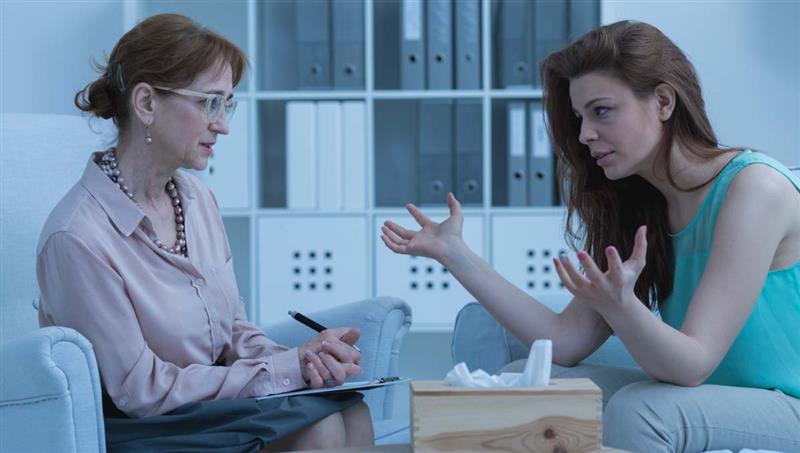Did you ever stress over some issues happening in your life? Certainly, everyone has challenges in life, and sometimes become devastating. Asking for help is a brave and bold decision. When you find yourself in this challenging situation, the most important step is to seek professional help and guidance.
As per modern research, it is estimated that the mental health crisis in America is 20%. It creates mental health issues in nearly one in five adults. Equally, mental health experts can provide the support and strategies you need to navigate through difficult emotions and regain emotional stability. Stay connected with us and learn more about the mental health crisis, its symptoms, and tips to manage. Keep reading and find out more interesting insights!
What is a Mental Health Crisis?
It is a situation where a person’s mental state becomes unstable. In such a scenario, people may injure themselves and others or become unable to operate regularly in daily life. These crises can emerge from various triggers such as intense stress, traumatic experiences, family conflicts, work pressures, or exposure to violence.
Similarly, it is a crisis that represents a critical moment when an individual’s emotional and psychological resources are tired, potentially leading to dangerous or disruptive behaviors that require immediate attention and support.
Still looking for the best psychiatrist to treat your mental health issue? No need to worry at all! You can contact us to avail of the customized treatment plan with our psychiatrist at MAVA Behavioral Health.
Signs of a Mental Health Crisis.
The signs of a mental health crisis include:
- Calling in ill or missing one or more days of work.
- Not showing up for social events or appointments on time.
- Falling into bad lifestyle choices.
- Exercising and maintaining poor cleanliness.
- Losing interest in pursuits, pastimes, or enjoyable things.
- Reluctance to interact with people or leave your house.
- Experiencing extreme sadness, despair, helplessness, or anxiety.
- Experiencing irritation, frustration, or tantrums.
- Finding it difficult to focus.
Mental Health and Crisis Compersion
A mental health crisis happens when someone is at risk of harming themselves or others through their feelings, actions, or behaviors. It includes various situations like family conflicts, workplace stress, or experiencing trauma and violence.
In addition, not every mental health issue is linked to a mental illness, but people with a diagnosis of mental health disorders are more likely to experience a crisis. While everyone faces stress, individuals with mental health conditions often struggle more to handle these challenges effectively.
Thus, your ability to cope with difficult situations may be more limited, making you more vulnerable to intense emotional reactions and potentially harmful behaviors. Try to help the person regain emotional stability and develop coping strategies to prevent further escalation of their distress.
Mental Health Crisis in Children
The children’s mental health crisis is a growing concern, with increasing numbers of young people experiencing significant emotional and psychological challenges. Modern research shows that mental health crisis in America is increasing in adults more frequently. These challenges can include anxiety, depression, behavioral disorders, and other mental health issues that impact their daily functioning and overall well-being.
Furthermore, the crisis is complex, involving factors like academic pressure, social media influence, family dynamics, and limited access to mental health resources. Many children struggle to receive timely and appropriate support, which can lead to long-term developmental and emotional consequences if left unaddressed.
Mental Health Crisis in America
Mental health problems are a big issue in the United States. Many people struggle with conditions like anxiety and depression. The main challenges of mental health crisis in America include:
- Not enough help: Many areas don’t have enough mental health professionals or affordable treatment.
- Shame and fear: People feel guilty about getting help, so they don’t seek support.
- Pandemic impact: COVID-19 made things worse by causing more stress, loneliness, and money problems.
To help solve this crisis, we need to:
- Spend more money on mental health services.
- Make health insurance cover mental health better.
- Awareness of mental health challenges.
- Create better ways to support both mental and physical health.
Types of Crisis in Mental Health
There are various types of mental health crises that several different life events and situations can provoke. When your emotions exceed the crisis line for mental health, they become more dangerous and need treatment.
Acute Mental Health Crisis
This acute mental health issue is an immediate, intense situation where an individual experiences severe psychological distress that poses an imminent risk of harm to themselves or others. Such a crisis requires urgent professional intervention to prevent potentially dangerous outcomes.
Maturational Crisis
It is a unique type of issue that occurs with important life changes. A young kid starts school, an adolescent has a sexual encounter, a young adult marries, a middle-aged person navigates the complications of raising teens, or an older adult faces worsening health or the death of a spouse. However, these changes can be especially difficult since they frequently elicit a wide variety of emotions and adaptations.
Situational Crisis
This situational mental health challenge is characterized by grieving, which stems from the loss of a setting that poses physical, social, or psychological harm to the individual. This sort of mental health challenge can be caused by academic failure, job loss, divorce, the delivery of a child with healthcare difficulties, the death of a precious one, or catastrophic injury.
Adventitious Crisis
A rare event, such as a flood, fire, earthquake, pandemic like COVID-19, aircraft accident, riot, war, terrorist act, violent attack, or poor conduct, causes the crisis. Many such catastrophes affect a vast number of individuals or entire communities. Therefore, an individual’s mental health may be missed. It can also be difficult to reach out to mental health specialists at this period since they are unable to reply swiftly to such a large number of requests.
Sociocultural Crisis
This situation emerges because an individual cannot function according to the social structure found in their community. Discriminatory practices such as class distinction or sexual orientation are included in this type of crisis. However, it is estimated that mental health crises in America arise more frequently after the pandemic.
What Are The 4 Phases of Crisis Mental Health?
There are 4 phases of crisis mental health. These phases include the following characteristics:
Stage 1: Prodromal phase
It is the first stage before the crisis. Sometimes, this stage can feel like a normal day. Some crises, such as active shooter events, cyberattacks, or natural disasters, can occur without warning. For other situations, your crisis management team may find warning signs of a mental health crisis line. Such crises as extreme weather or transportation problems might provide some warning signs, for example, weather alerts on television and social media.
Stage 2: Acute phase
In this phase, your organization sees the initial signs of a crisis starting to happen. This is called the acute phase, but it is also the point of no return that can no longer stop the crisis from happening. Now is the time to focus on how to assess risks and start managing them so you can immediately respond and lessen the blow of the event. The acute stage usually is the shortest of the four stages and often the most intense.
Stage 3: Chronic phase
The crisis enters its reaction stage as you deploy the resources to handle the situation after you have activated your response plan. The members of your crisis team are now acting. The sort of crisis determines how long this stage lasts. For certain occurrences, such as a snowfall, it could only take a few days. For others, such as a public health emergency, the reaction time can be significantly longer.
Stage 4: Resolution phase
During the crisis phase, you may need to inspect and restore damage to buildings or other assets so that the company may resume normal operations. During the rehabilitation phase, you should also assess how the crisis affected your employees’ mental health and well-being. By contrast, employers may give counseling or further help. If the crisis resulted in bad media coverage, your public relations staff may need to try to restore your reputation.
How to Recognize a Mental Health Crisis?
According to recent studies, several signs and symptoms suggest that an individual may be experiencing a mental health crisis, including:
- The struggle to perform simple tasks.
- Distant from the family and friends.
- Impulsive or reckless behavior, aggression, agitation.
- Dramatic changes in eating or sleeping habits.
- Sudden mood changes.
- Losing touch with reality.
- Paranoia.
What Is the Average Duration of a Mental Health Crisis?
The duration of a mental health crisis is not standardized is important to note. It can vary significantly from individual to individual, as well as from one situation to another. For certain individuals, the crisis may persist for only a few hours; however, for others, it might extend over several days or even weeks.
Additionally, various factors play a role in determining the length of a youth mental health crisis. The underlying causes along with the individual’s condition, environment, coping mechanisms, support system, and access to treatment. Hence, all contribute to both the symptoms experienced and the overall duration of the crisis.
Important Note:
All the details provided in this article aim for informational and educational purposes. Please don’t consider it medical advice or a substitute for a psychiatric evaluation. For professional guidance and treatment, consult with our licensed healthcare professionals at MAVA Behavioral Health.
Let’s Recap
In summary, a mental health crisis occurs when an individual’s behaviors hinder their functioning or suggest a potential threat to themselves or others. Meanwhile, the mental health crisis in America is calculated as a 13% rise in mental health conditions over the past decade. If you’re looking to be proactive, developing a mental health crisis plan can be crucial and having resources readily available can prove invaluable. To obtain mental health support and a personalized treatment plan, consider reaching out to MAVA Behavioral Health. Our psychiatrist will attentively listen to your concerns and suggest the most suitable solution.









